Filter by
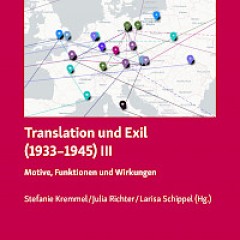
Translation und Exil (1933–1945) III
Translation und Exil (1933–1945) III fragt nach Motiven, Funktionen und Wirkungen von Übersetzungen. Exil wird oft unter dem Stichwort des Verlusts verhandelt und der Exodus von Gelehrten und Künstlerinnen beklagt. Verlässt man diese nationalstaatlich angelegte Betrachtungsweise und untersucht Personen und Gegenstände konsequent aus der Perspektive des Exils, stellt sich heraus, dass der …
- Edition
- 1
- ISBN/ISSN
- 978-3-7329-9010-8
- Collation
- 420
- Series Title
- Transkulturalität – Translation – Transfer
- Call Number
- -
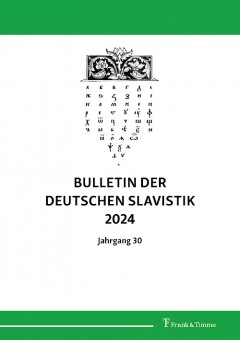
Bulletin der deutschen Slavistik 2024
Das Bulletin der deutschen Slavistik ist das offizielle Organ des Verbands der deutschen Slavistik (http://slavistik.org/) und erscheint jährlich.
- Edition
- 1
- ISBN/ISSN
- 978-3-7329-8816-7
- Collation
- 120
- Series Title
- Bulletin der deutschen Slavistik
- Call Number
- -

Siebenbürgen zwischen Großungarn und dem österreichischen Gesamtstaat
Die Edition des Briefwechsels von Guberniumspräsident Ludwig Folliot von Crenneville und Hofkanzler Franz von Nádasdy umfasst die Jahre 1861 bis 1863. Beide prägten die Politik ihrer Zeit. Ihre Korrespondenz ist eine bemerkenswerte Quelle zu den inneren Mechanismen von Verwaltung und Machtausübung im Habsburgerreich in der Endphase des gesamtstaatlichen Kaisertums Österreich. Mit dem Oktob…
- Edition
- 1
- ISBN/ISSN
- 978-3-7329-9325-3
- Collation
- 438
- Series Title
- DigiOst
- Call Number
- -
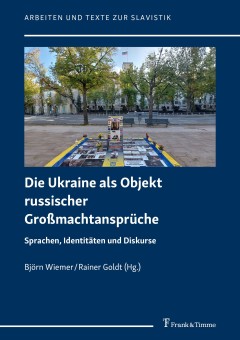
Die Ukraine als Objekt russischer Großmachtansprüche
Dies ist ein Open-Access-Buch.
- Edition
- 1
- ISBN/ISSN
- 978-3-7329-8963-8
- Collation
- 364
- Series Title
- -
- Call Number
- -
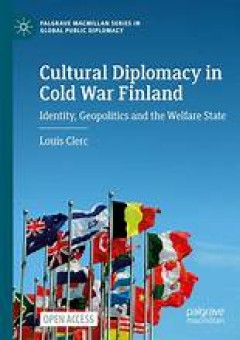
Cultural Diplomacy in Cold War Finland
This open access book explores the organization and evolution of Finland’s Cold War cultural diplomacy (1945-1975) as the basis for a reflection on the country’s foreign relations, the link between culture and politics, small states’ autonomy during the Cold War, and the porosity of the East-West divide. The book offers a historical survey of the development of Finland’s cultural dip…
- Edition
- 1
- ISBN/ISSN
- 978-3-031-12205-7
- Collation
- -
- Series Title
- Palgrave Macmillan Series in Global Public Diplomacy
- Call Number
- XVII, 258
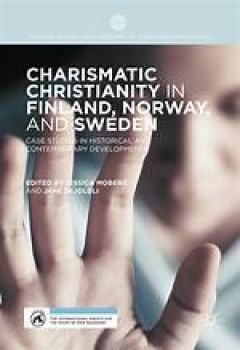
Charismatic Christianity in Finland, Norway, and Sweden
This is open access under a CC BY 4.0 license The history of Charismatic Christianity in the Nordic countries reaches as far back as Pentecostalism itself. The bounds of these categories remain a topic of discussion, but Nordic countries have played a vital role in developing this rapidly spreading form of world-wide Christianity. Until now, research on global Charismatic Christianity has lar…
- Edition
- 1
- ISBN/ISSN
- 978-3-319-69614-0
- Collation
- -
- Series Title
- Palgrave Studies in New Religions and Alternative Spiritualities
- Call Number
- XVI, 248
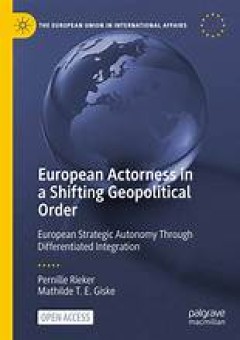
European Actorness in a Shifting Geopolitical Order
This is an open access book. With the unprovoked Russian invasion of Ukraine, European security has been put on high alert. The implications of the Russian military invasion are many and difficult to grasp in full. However, the need for greater European strategic autonomy appears increasingly evident. The book argues that strategic autonomy may be reached—also in the short run—if differenti…
- Edition
- 1
- ISBN/ISSN
- 978-3-031-44546-0
- Collation
- -
- Series Title
- The European Union in International Affairs
- Call Number
- XIX, 133
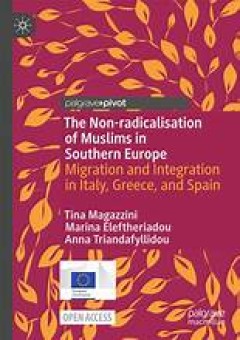
The Non-radicalisation of Muslims in Southern Europe
This open access book explains why southern European countries with significant Muslim communities have experienced few religiously inspired violent attacks – or have avoided the kind of securitised response to such attacks seen in many other Western states. The authors provide a unique contribution to the literature on violent extremism – which has traditionally focused on countries such a…
- Edition
- 1
- ISBN/ISSN
- 978-3-031-71996-7
- Collation
- -
- Series Title
- Rethinking Political Violence
- Call Number
- XV, 124
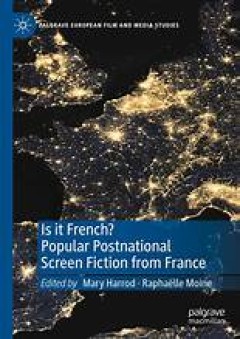
Is it French? Popular Postnational Screen Fiction from France
This book investigates the recently accelerated phenomenon of mainstream French film and serial television’s remarkable popularity not only within but – more novelly for European audiovisual narratives – outside the domestic context. Treating changes that have taken place in France's production landscape during the mass rollout of global streaming platforms as revelatory of broader tenden…
- Edition
- 1
- ISBN/ISSN
- 978-3-031-39195-8
- Collation
- -
- Series Title
- Palgrave European Film and Media Studies
- Call Number
- XXIII, 302

Ukraine’s Thorny Path to the EU
This interdisciplinary book takes stock of Ukraine’s thorny European integration path in the last two decades. Engaging many Ukrainian academics and practitioners, the book seeks to offer a first-hand insight into how Ukraine moves towards EU membership, while in war with Russia, and which ‘stumbling blocks’ it encounters.
- Edition
- 1
- ISBN/ISSN
- 978-3-031-69154-6
- Collation
- -
- Series Title
- -
- Call Number
- XIII, 327
 Computer Science, Information & General Works
Computer Science, Information & General Works  Philosophy & Psychology
Philosophy & Psychology  Religion
Religion  Social Sciences
Social Sciences  Language
Language  Pure Science
Pure Science  Applied Sciences
Applied Sciences  Art & Recreation
Art & Recreation  Literature
Literature  History & Geography
History & Geography